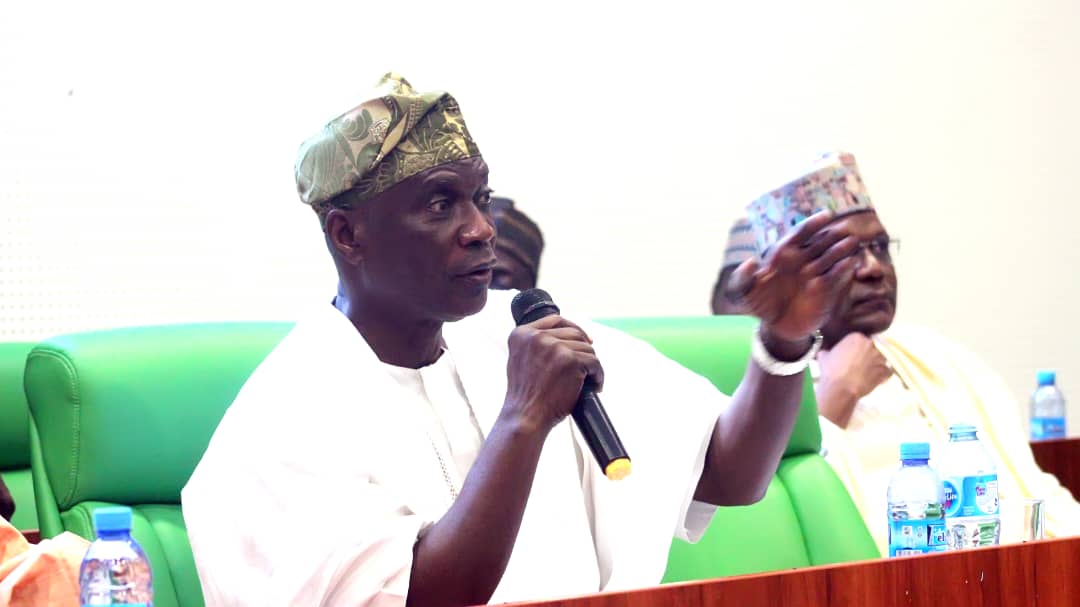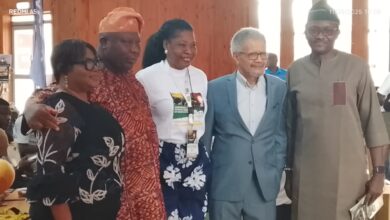CILT Nigeria Prioritises Legislative Recognition, Modernisation to Drive National Logistics Reform

The Chartered Institute of Logistics and Transport, Nigeria (CILT Nigeria), has declared that securing legislative recognition and driving comprehensive institutional transformation will be its top priorities under the new administration.
The President and Chairman of Council, Dr. Boboye Oyeyemi, stated this during his investiture as the 21st President of the institute and the swearing-in of new council members on Thursday in Lagos.
Oyeyemi, a former Corps Marshal and Chief Executive of the Federal Road Safety Corps, said the institute was committed to repositioning Nigeria’s logistics and transport sector through reforms that align with global standards.
Oyeyemi said legislative recognition remained central to strengthening CILT Nigeria’s credibility and capacity to regulate professional standards.
“Project 2027 aims to secure legislative recognition for CILT Nigeria, granting statutory authority to regulate professional standards, protect its chartered status, and strengthen national and global institutional credibility,” he said.
He explained that the institute’s transformation agenda for 2025–2027 would be anchored on eight strategic pillars, including membership expansion, reforms, governance, innovation, digital services, inclusivity, collaboration, and global leadership.
After 67 years of existence, Oyeyemi said CILT Nigeria was ready for renewal and modernisation, driven by accountable leadership and measurable programmes that empower members, build stronger institutions, and enhance international visibility.
He added that the agenda would prioritise innovation, skills development, research, mentorship, and strategic partnerships that would position the institute as a regional logistics leader.
“Its focus areas include sustainability, multimodal integration, national partnerships, and green logistics. Through policy collaboration, CILT Nigeria will build an efficient, safe, and competitive transport system,” he said.
Minister of Marine and Blue Economy, Adegboyega Oyetola, described Oyeyemi as a visionary leader and urged the institute to work closely with relevant agencies to improve freight forwarding standards, certification, research, and policy implementation.
“He should ensure a more coherent and globally competitive logistics ecosystem,” Oyetola said.
Former Minister of Works and Housing, Babatunde Raji Fashola, SAN, who chaired the event, emphasised that the future of logistics would be shaped by technologies such as artificial intelligence and robotics.
“Logistics today is not merely about moving goods but moving value through speed, transparency, and standards. Oyeyemi must strengthen capacity development and collaboration and ensure the sector contributes fully to national development,” he said.
Special Guest of Honour, Prof. Wole Soyinka, congratulated Oyeyemi and expressed optimism for innovations during his tenure.
Delivering the investiture lecture, Prof. Kayode Oyesiku said effective leadership in CILT required integrity, accountability, and strong membership growth. He stressed that the institute’s progress would depend on advocacy, partnerships, training benefits, and institutional reforms.
“Quality leadership will transform CILT Nigeria into a national force in logistics and transport. The new president must invest in development, harness available support, and ensure inclusive, sustainable growth,” Oyesiku said.
READ ALSO: Senate Confirms Omidiran As FCC Chairman, Approves 37 Commissioners For States, FCT
Outgoing President, Mrs. Mfon Usoro, noted that CILT Nigeria currently has 2,021 active members. She highlighted key achievements, including the restructuring of the annual conference, digital transformation, and expanded partnerships. She reaffirmed that CILT Nigeria remains the only CILT territory in Africa since attaining territory status in 2014.
Representatives from allied professional bodies attended the event, while award recognitions were presented to distinguished personalities including Usoro, Fashola, and Soyinka.




